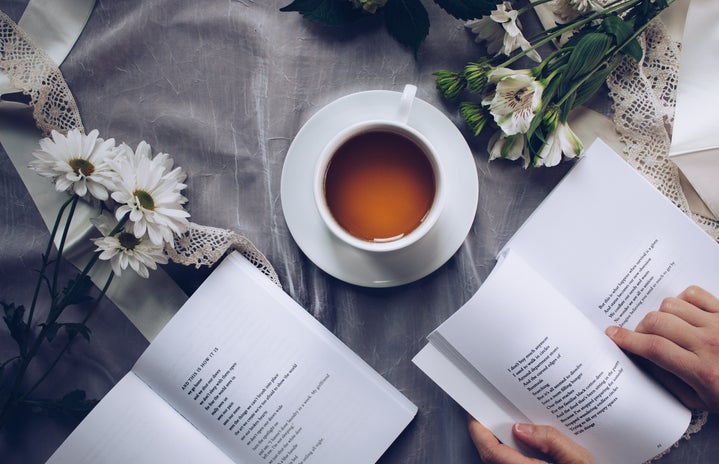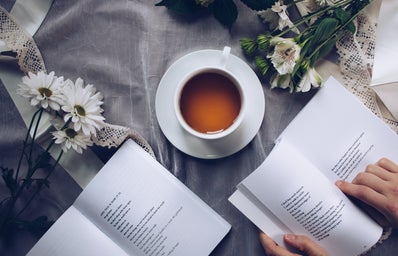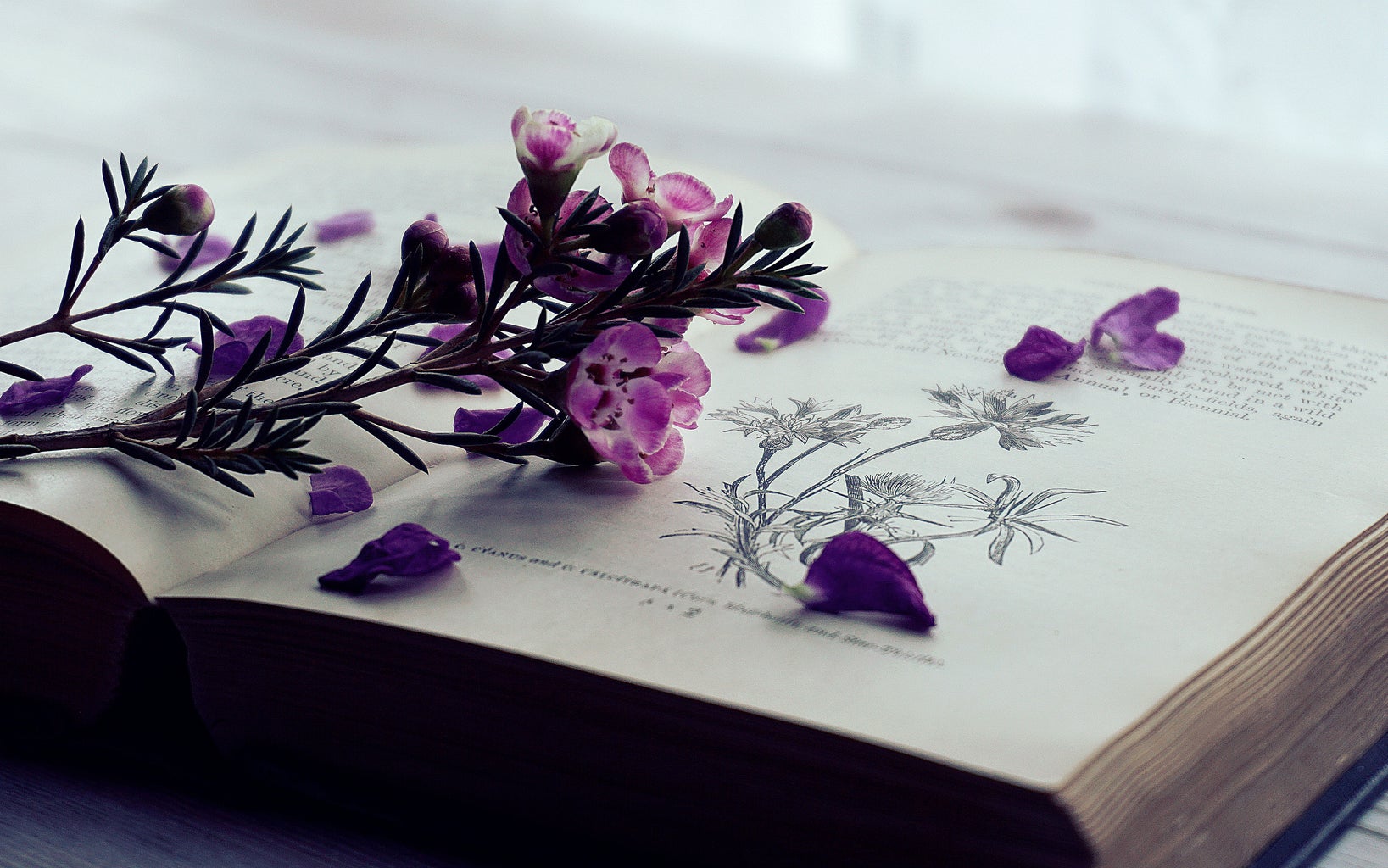The Her Campus National Editors write about products we love and think you’ll love too. Her Campus has affiliate partnerships, so we get a share of the revenue from your purchase. All products are in stock and all prices are accurate as of publication.
Being a young woman often feels like being a specimen in a microscope slide; the probing eye of society magnifying your squirming discomfort. Yet, ever since I began reading poetry by women (which was, admittedly, a long time ago), I found the reflections of other women on their experiences to be a meditative way to approach my own experiences, as well as inspire my poetry and non-fiction writing. Even in experiences I had never encountered or yet to undergo, I felt connected to these women, who had experienced the same slow sorrow and hope for the future in their dissections of identity, grief, ethnicity and culture, heartbreak, love, body image, family, sex, mental illness, and childhood. If you are finding yourself wanting inspiration for your own poetry or are simply stuck in a reading hiatus and looking for some short yet impactful reads by women, I recommend grabbing a warm latte and visiting St Andrews’ Toppings or Waterstones on the weekend and browsing for these five reads. (As a bonus, Toppings also has cute tote bags under £5 and a neighboring feminist literature and poetry section.) All of these books include links to alternative online-purchase options.
‘Bless the Daughter Raised by a Voice in Her Head’ by Warsan Shire
I first discovered ‘Bless the Daughter Raised By a Voice in Her Head’ by Somali-British poet Warsan Shire last September when visiting Toppings with a friend after class. To this day, it remains one of the most heartbreaking and captivating poetry collections I have read. In Shire’s first full-length poetry collection, she details the extremities of girlhood, trauma, assimilation, immigration, sacrifice and grief through lucid, phantasmic poems about coming-of-age as a Black woman. Her poetry breathes with life, reconciling her past, present, and future while bringing forth necessary narratives surrounding immigration and refugees. One of my favorite poems includes “Drowning in Dawson Creek,” in which she writes: “When I was twelve or thirteen and mad with loneliness/ I dreamed of white boys and ladders leading to bedroom windows./I dreamed all night of their scurrying, climbing in and out of me” (Warsan 15).
‘Life of The Party’ by Olivia Gatwood
‘Life of the Party’ by Olivia Gatwood, a writer and sexual assault prevention/recovery educator, is one of my all-time favorite contemporary poetry collections because it explores girlhood and female sexuality in “a sexist, sensationalized world” through examining not only Gatwood’s personal experience but also the fetishization of women in true crime.
‘Life of the Party’ is a rebellion against the normalization of gendered violence. The collection captures the fear and anger of growing up in a world where the objectification of women and the violent acts committed against them are so often discarded. Although the book makes for a dark read, Gatwood calls out society’s failure in protecting women from violence and also writes a love letter to women everywhere.
In poems like ‘When I Say We Are All Teen Girls,’ she takes the hatred society directs at teen girls and their distinctly ‘feminine’ interests, and turns them into powerful odes to femininity. In her live, spoken-word performance of the poem, she compares the loyalty of her father’s wrench to that of a teen girl, and the mountains as akin to colossal teenage girl show offs. Ultimately, Gatwood’s work is necessary and profoundly moving.
If you or someone you know has been raped or sexually assaulted, call the National Sexual Assault Hotline at 800-656-4673 or visit hotline.rainn.org/online.
‘Sylvia Plath Poems’ chosen by Anne Carol Duffy
If you are a young woman who likes poetry, chances are you’ve probably been recommended Sylvia Plath’s ‘Ariel’ and ‘The Bell Jar’ more than a handful of times. Yet, if you’re looking for a book to begin your exploration of Sylvia Plath or are searching for a new collection of her poetry beyond the most overtly famous, I highly recommend Carol Ann Duffy’s 160 page chronological selection: ‘Sylvia Plath Poems’. I picked up this book on my first trip to London last spring and loved it so much, I read the entirety of it in the city’s tulip-filled St. James Park. Sylvia Plath’s writing is famously electric and this collection delves into an important range of subjects from gender to motherhood to mental illness.
‘The Tulip Flame’ by Chloe Honum
Although I read ‘The Tulip-Flame’ by Chloe Honum a couple of years ago, discovering it in an ‘Adroit Journal’ Poetry Workshop, it has remained one of my favorite contemporary poetry collections written by women. It is also one of my favorite poetry books to recommend as it is a more obscure read and is very short in length, numbering only 55 pages. ‘The Tulip-Flame,’ named after a poem by the same name first published in ‘Shenandoah,’ delves head first into Chloe Honum’s personal life. Through vivid imagery of agrestic landscapes, she creates painful, elegiac poems that explore her mother’s suicide and its aftermath. ‘The Tulip Flame’ also explores the world of dance and ballet, creating a book which in of itself feels like a quiet dance amid a frozen, passing landscape.
‘Lessons on Expulsion’ by Erika L. Sanchez
Erika L. Sánchez’s debut poetry collection ‘Lessons on Expulsion’ opens with “Quinceañera”: “In the warmth of your bedroom, you pierce your navel with a safety pin, slice/ the skin you hide beneath your billowy dresses” (Sánchez 3). I was immediately drawn to Sánchez’s novel, “I Am Not Your Perfect Mexican Daughter” in Pasadena’s Vromans in California, and when I discovered her poetry collection, I knew that I would love it. In Lessons on Expulsion, Sánchez delves into her youth and experience as the daughter of undocumented Mexican immigrant parents, opening discussions surrounding sex, femininity and race. Similarly to Gatwood, she sheds light on relevant topics including immigration and xenophobia while capturing the essence of what it means to grow up as a young woman in a complex, often dark world.



